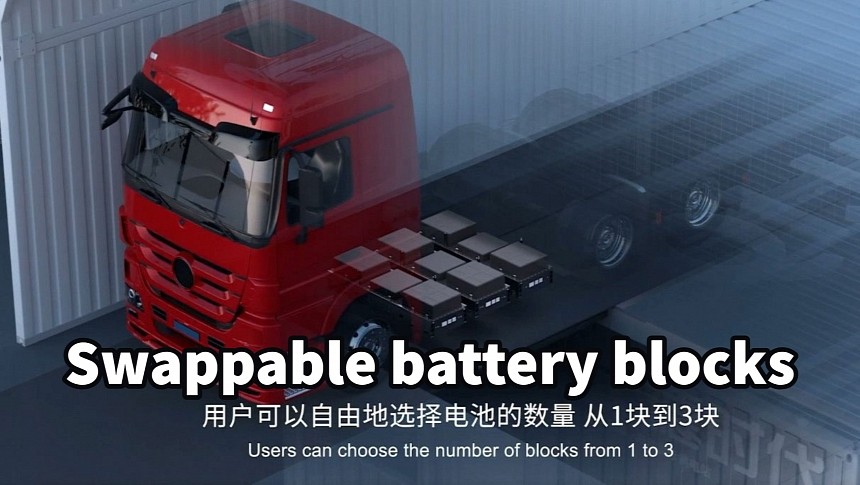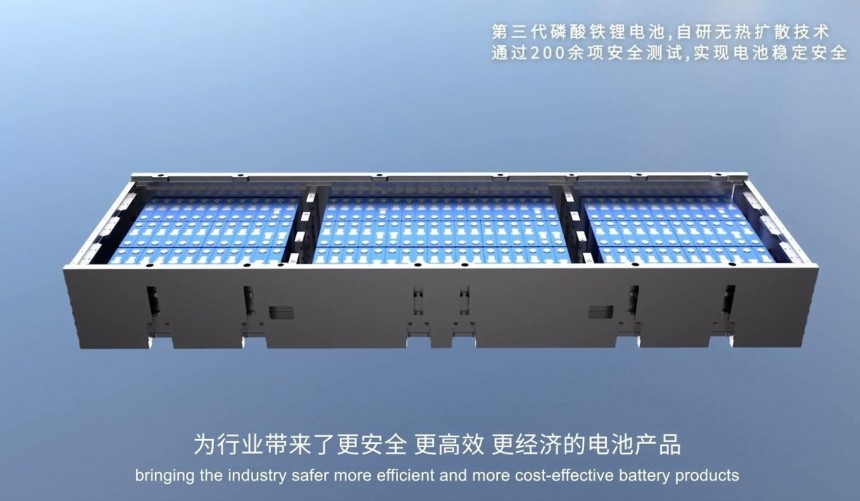Swappable batteries are part of a trend that, like fashion, comes and goes. Some say they don't make sense, while others claim it's a better solution than wasting time at a charger. CATL is firmly in the latter group as it unveiled a battery-swapping solution for heavy-duty trucks.
Few people know that the first battery-swapping service was started in 1912 by General Motors and endured 12 years until it was phased out because of waning demand. It took another 83 years before Silicon Valley startup Better Place developed a battery-switching process in 2007 and signed up Nissan-Renault for pilot projects in several countries. This initiative also died because of a lack of interest. Better Place burnt more than $600 million in investors' money before it filed for bankruptcy in 2013.
The same year, Tesla started a battery-swapping service for the Tesla Model S, which ultimately proved a pain. In 2014, Tesla abandoned battery-swapping plans and started to build the Supercharger network instead. The rest is history, but that doesn't mean battery swapping is dead. Chinese EV startup NIO appears to successfully operate a battery-swapping service, with over 15 million swaps already performed by the end of 2022. NIO claims it offers about 40,000 battery swaps per day, which sounds like a booming business.
NIO's success encouraged other Chinese companies to consider swappable batteries. Still, battery swapping is far from painless. The battery packs must be highly standardized, so they are not optimized for a specific model. Also, the thermal management system has cooling lines that can get damaged, complicating things. And with fast charging and the ubiquity of charging stations, it's often more convenient to have the battery charged for 15-20 minutes than swapped in 5 minutes.
There's a scenario where battery swapping proves a better alternative to charging and battery giant CATL seized the opportunity. We're talking about heavy-duty trucks, which usually use huge battery packs. Fully charging them takes time, even at a "Megawatt" charger, so battery swapping could be a better solution. Using Lithium Iron Phosphate batteries in a configuration that doesn't need active cooling, CATL can vastly optimize the battery packs for swapping.
Qiji Energy is CATL's battery-swapping solution tailored for heavy trucks, comprising battery swap stations, battery packs, and the underlying cloud platform. The battery packs consist of up to three blocks powered by CATL's third-generation LFP cells with no heat dispersion technology and a cycle life of over 15,000 cycles. Customers can specify between one to three battery blocks depending on applications and use-case scenarios.
Each battery block has a capacity of 171 kWh, which means the maximum battery capacity is 513 kWh. For comparison, the Tesla Semi is thought to feature a 1-MWh battery pack, although the EV maker never published the battery capacity. Tesla claims the Semi needs "less than 2 kWh per mile" and can go up o 500 miles on a charge, which confirms the speculations. However, the Semi needs half an hour or more at a Megacharger to replenish its batteries. CATL promises that swapping the battery blocks will only take a few minutes. This is a significant advantage for a commercial vehicle.
In January, CATL also announced a battery swap service for passenger cars under the EVOGO brand. This is primarily destined for the shared mobility market, another field that requires EVs to spend more time on the road and less time charging. On June 6, CATL said EVOGO opened the first three swap stations in Fuzhou, the capital of Fujian province. The service was already available in three other regions, Xiamen, Hefei, and Guiyang.
The same year, Tesla started a battery-swapping service for the Tesla Model S, which ultimately proved a pain. In 2014, Tesla abandoned battery-swapping plans and started to build the Supercharger network instead. The rest is history, but that doesn't mean battery swapping is dead. Chinese EV startup NIO appears to successfully operate a battery-swapping service, with over 15 million swaps already performed by the end of 2022. NIO claims it offers about 40,000 battery swaps per day, which sounds like a booming business.
NIO's success encouraged other Chinese companies to consider swappable batteries. Still, battery swapping is far from painless. The battery packs must be highly standardized, so they are not optimized for a specific model. Also, the thermal management system has cooling lines that can get damaged, complicating things. And with fast charging and the ubiquity of charging stations, it's often more convenient to have the battery charged for 15-20 minutes than swapped in 5 minutes.
There's a scenario where battery swapping proves a better alternative to charging and battery giant CATL seized the opportunity. We're talking about heavy-duty trucks, which usually use huge battery packs. Fully charging them takes time, even at a "Megawatt" charger, so battery swapping could be a better solution. Using Lithium Iron Phosphate batteries in a configuration that doesn't need active cooling, CATL can vastly optimize the battery packs for swapping.
Each battery block has a capacity of 171 kWh, which means the maximum battery capacity is 513 kWh. For comparison, the Tesla Semi is thought to feature a 1-MWh battery pack, although the EV maker never published the battery capacity. Tesla claims the Semi needs "less than 2 kWh per mile" and can go up o 500 miles on a charge, which confirms the speculations. However, the Semi needs half an hour or more at a Megacharger to replenish its batteries. CATL promises that swapping the battery blocks will only take a few minutes. This is a significant advantage for a commercial vehicle.
In January, CATL also announced a battery swap service for passenger cars under the EVOGO brand. This is primarily destined for the shared mobility market, another field that requires EVs to spend more time on the road and less time charging. On June 6, CATL said EVOGO opened the first three swap stations in Fuzhou, the capital of Fujian province. The service was already available in three other regions, Xiamen, Hefei, and Guiyang.







